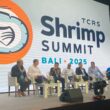Russia’s invasion has turned the eyes of the world on Ukraine but, at the same time, has devastated domestic media outlets seeking to report what is happening to their country.
Though it faces inevitable reporting restrictions during the war, Ukraine’s free media – including a vibrant independent digital press – is one of the many things that sets it apart from Russia. Yet keeping that media commercially viable through the economic shock of war is a huge challenge.
Before February’s invasion, many of the challenges faced by Ukraine’s news outlets would have been familiar to media elsewhere in Europe or North America. But the country’s past – on the Soviet side of the Iron Curtain – had led to some key differences in the development of its media market.
Following independence in 1991, Ukraine quickly developed a thriving TV industry, but one largely controlled by wealthy individuals, some unafraid to exercise their media power. A brief emergence of print media was largely killed off by the global crash of 2008.
“We only had like 30 years to build the media industry from scratch, because previously, it was all State run and State censored,” says Andrey Boborykin, CEO of Ukrainska Pravda, a news outlet launched in 2000. “We didn’t have this luxurious print dominated era with, you know, Time magazine, business trips and all this stuff… Briefly in the 1990s, there was a sense to run a print magazine but it’s not the case anymore.”
Ukraine did, however, develop a digital media market that thrived on advertising which, like much of the world, is very dependent on the likes of Facebook and Google for distribution and, with an underdeveloped ad-tech industry, also heavily dependent on them for programmatic ads.
But while the challenges of monetising an online audience were familiar, the war has had a catastrophic impact, with official figures putting the decline in advertising in Ukraine at 70% since the invasion.
Many outlets without the scale to pursue programmatic advertising had built healthy native ad businesses. But around 90% of that dried up once the war started, according to Katerina Sergatskova, editor-in-chief of community-focused media outlet Zaborona Media and co-founder of journalism fund 2402.
At the same time, slashed incomes has meant there is little room for Ukrainians to spend on subscriptions or donations, even if they see the importance of keeping media afloat. “People are really in trouble because they have very low income because of the war,” says Sergatskova. “And I guess 40% of Ukrainians lost their jobs because of the invasion…And, of course, people prefer to spend the money on the army or humanitarian aid, or just trying to save money for the future.”
Even larger digital publishers able to take advantage of programmatic advertising like Ukrainska Pravda, which has around 200m page views a month, have seen huge losses of revenue.
“I’d say that it’s a 75% to 80% drop,” says Boborykin. “It’s slowly coming back, but I actually expected it to come back a bit better than that. Most of our big advertisers in the programmatic market are e-commerce… and the local e-commerce market is devastated…”
The war has also posed specific challenges for publishers working in a platform dominated-environment. As Boborykin documented in a Twitter thread back in April, Facebook’s longstanding difficulties responding to the nuances of conflicts, such as the one in Ukraine, mean that publishers have to be extremely careful about how they post in order to avoid being penalised by a platform used by almost 30m people in the country.
Even media empires bankrolled by high net worth individuals haven’t been immune to the war’s impact. In July – when steel tycoon Rinat Akhmetov handed back to the state his licenses for 11 TV channels as well as a newspaper and Ukrainian Vogue – he blamed the decision on “anti-oligarch” rules instituted by the government. But analysts have suggested the move was as much about ditching an increasingly unprofitable venture that had, since the war, also lost much of its political influence. Akhmetov’s decision put 4,000 people out of a job with virtually no notice.
With Ukraine’s economy so badly hit by the war, readers outside the country – both citizens of other states and the around 8m Ukrainians who have fled – in theory provide a more monetisable readership.
Outlets such as the English-language Kyiv Independent – which was founded by the staff of the Kyiv Post after a dispute over interference by their owner – are well set to reach these audiences. A Go Fund Me for the Kyiv Independent, launched earlier this year, has raised £1.6m and more than 7,000 people have signed up to be patrons, bringing in close to £60,000 per month.
But for many others, particularly those that rarely or never publish in languages other than Ukrainian, readership revenue, even when boosted by those keen to support media through the war, is only going to account for a small proportion of what’s needed to keep the lights on and the news flowing.
That means that, while the war rages, donor support from international funds remains vital to keeping Ukrainian media going, particularly for smaller businesses, says Boborykin, who works with local outlets through Ukraine’s Media Development Foundation.
“I get a lot of data about what’s happening on the local side. It’s a more tragic thing on the local side than on the national side,” says Boborykin. “So we try to help independent local publishers, finding programmes and applying for USAID funds, European Endowment for Democracy, lots of programmes, almost anything that we can find. Donor funding is the only way out. And I think it will be the case, at least for a couple of years ahead.”
Accessing that money, however, is not easy for everyone.
“To be able to apply to different foundations, to develop the relationship with different foundations across the globe, you need some skills for that,” says Sergatskova. “If you have never applied for this kind of support, never written a grant application or whatever, before the invasion, you just have to have to learn very quickly. And that’s pretty impossible, because people are so exhausted by covering the war.”
One outstanding question may be: Will any of the world’s media companies mirror their governments’ support for the war effort by directly helping to save Ukraine’s stricken media?




